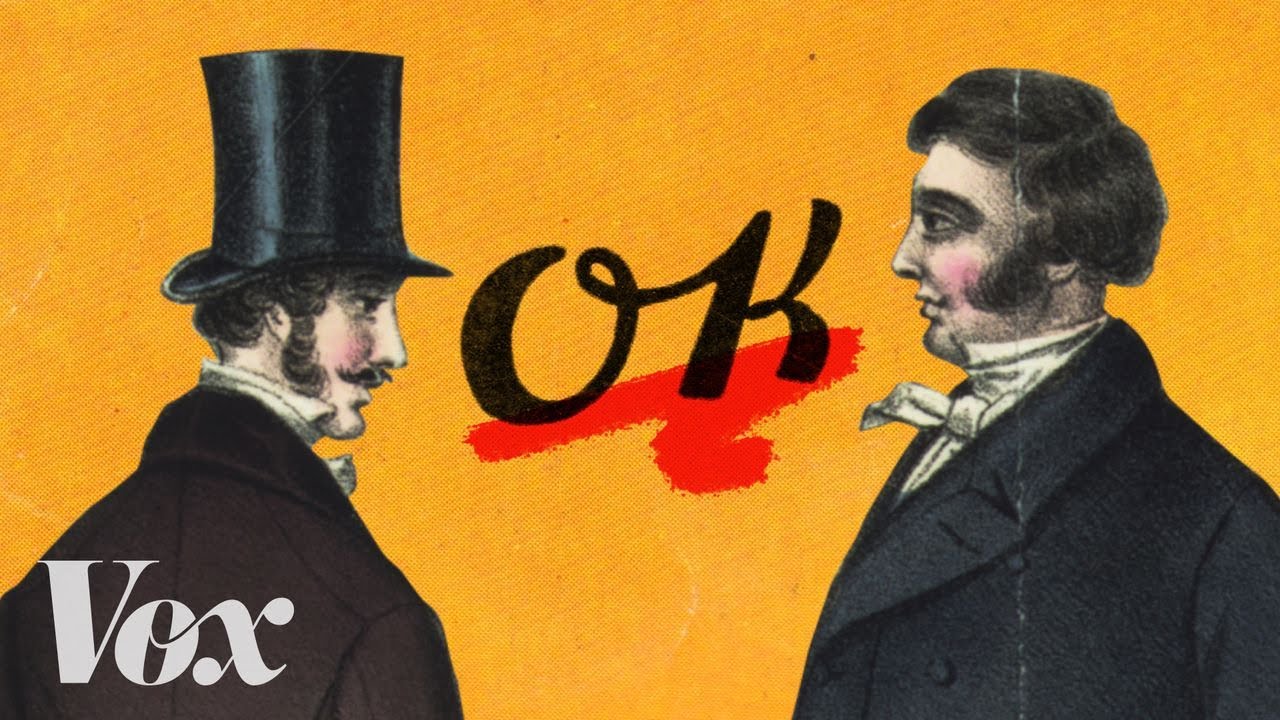Why We Say “Ok”
Unleash Your Creative Genius with MuseMind: Your AI-Powered Content Creation Copilot. Try now! 🚀
The word "OK" is something we encounter every day. It's a two-letter wonder that resonates across cultures and languages, connecting us to one another and even to our technology. But have you ever wondered about the origins of this versatile little word? Let's dive into the fascinating journey of "OK."
OK's Bostonian Beginnings: A Misspelled Fad
Back in the 1830s, a curious linguistic fad took hold among young intellectuals in Boston. They delighted in crafting butchered coded messages by intentionally misspelling common abbreviations. For instance, they transformed "KC" into "knuff ced," "KY" into "know yuse," and "OW" into "oll wright." It was a playful linguistic game.
But amid this fad, one abbreviation emerged victorious – "OK," a playful variation of "all correct." During the early 1800s, "all correct" was a commonplace phrase used to confirm that everything was in order. On March 23, 1839, "OK" made its debut in the Boston Morning Post. Soon, the word spread like wildfire across the country, transcending Boston's intellectual circles.
This linguistic phenomenon even influenced the realm of politics. Martin Van Buren, a US president from Kinderhook, New York, adopted "OK" as a nickname during his 1840 reelection campaign. Van Buren's supporters formed "OK Clubs," emphasizing that "Old Kinderhook" was "oll korrect." However, his opponents cleverly turned the abbreviation against him, suggesting that it stood for "Orful Konspiracy" or "Orful Katastrophe." Ultimately, Van Buren's presidency was not saved, but "OK" found its place in the American vernacular.
The Telegraph's Role in OK's Evolution
The year 1844 marked the debut of the telegraph, a transformative invention. It transmitted short messages as electric pulses, using combinations of dots and dashes to represent letters of the alphabet. "OK" seized this moment to shine. These two letters were easy to tap out and nearly impossible to confuse with anything else. Consequently, "OK" was swiftly embraced as a standard acknowledgment of received transmissions, especially among operators on the expanding US railroad. A telegraphic manual from 1865 even emphasized that "no message is ever regarded as transmitted until the office receiving it gives O K." "OK" had truly become serious business.
But the enduring appeal of "OK" isn't solely due to its practicality. It has much to do with its visual impact. The letter "K" has an uncommon place at the start of English words, ranking around 22nd in the alphabet. This rarity sparked a "Kraze for K" in advertising and print at the turn of the century. Companies substituted hard "C"s with "K"s to catch the eye and make words more memorable. This strategy still prevails, evident in modern corporate logos like Krispy-Kreme and Kool-Aid.
The Legacy of "OK": A Neutral Affirmation
As we fast-forward through time, "OK" has transcended its Bostonian roots and is now embedded in our language. It has evolved into the ultimate "neutral affirmative." When someone says "OK," it doesn't convey emotions or evaluations. It merely acknowledges and accepts information. If you hear "I got home OK," it means the person arrived unharmed. If the verdict on dinner is "it was OK," it signifies that the meal was acceptable. And when you hear "OK," it confirms a change of plans. It's almost reflexive; we use it so frequently that it's become second nature.
In fact, "OK" arguably had the distinction of being one of the first words spoken when humans landed on the moon, a testament to its universal recognition and utility. Not bad for a humble, corny joke born in the 1830s.
The journey of "OK" is a testament to the power of language to adapt, evolve, and bridge cultures. This simple word, born from a linguistic fad, now unites us all in a shared understanding, transcending borders and generations. So next time you use "OK," remember the rich history it carries and the quirky path it took to become the global phenomenon it is today.
